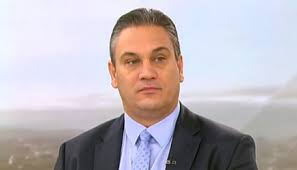SOFIA, (Reuters) – The head of Bulgaria’s anti-corruption commission has resigned following a scandal over purchases of luxury properties at favourable prices that has already forced some senior ruling party’s politicians to quit.
Chief Prosecutor Sotir Tsatsarov said in April that the anti-corruption chief, Plamen Georgiev, was among people being investigated in the scandal, for allegedly making false declarations about the circumstances in which he and his wife acquired an apartment in the capital Sofia.
President Rumen Radev withdrew confidence from Georgiev, who had taken charge at the commission in March 2018.
Georgiev, who had taken a long leave so there could be no suspicion he would in any way influence the investigation, denied any wrongdoing.
“I haven’t committed an offence,” he told reporters in parliament on Wednesday. “I took the decision to resign a long time ago. Мy family has been subjected to incredible harassment by some media.”

Bulgaria’s anti-graft activist group said in a statement it was still expecting the authorities to explain discrepancies in what Georgiev had declared and what he actually owned.
The anti-corruption chief had failed to include in his declaration of assets a 186 square metre (2,000 square foot) terrace at the building in which he lives, according to investigators.
In a 120-3 vote, the Bulgarian parliament on Wednesday accepted Georgiev’s decision to resign.
The deputy leader of Bulgaria’s ruling GERB party, Tsvetan Tsvetanov, quit parliament in March after similar allegations.
The scandal, which sparked outrage in Bulgaria, has also prompted justice minister and two deputy ministers to resign following reports they bought spacious apartments in an upmarket Sofia suburb at below-market prices from the same real estate developer.
All the politicians have denied any wrongdoing.
The Black Sea state is ranked as the most corrupt European Union member state by anti-graft group Transparency International and analysts say high-level corruption is the main obstacle to Bulgaria’s ambitions of attracting more foreign investment and joining the EU’s Schengen free travel zone.
Successive governments have promised to stamp out corruption but no senior official has been imprisoned on corruption charges.





